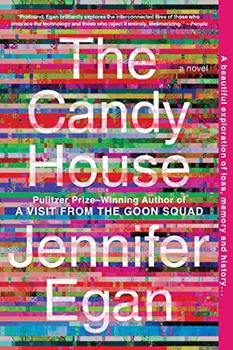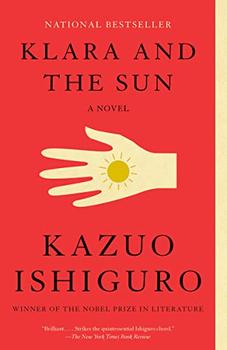Summary | Excerpt | Reviews | Beyond the book | Read-Alikes | Genres & Themes | Author Bio

Qualityland by Marc-Uwe Kling is set in a near-future Western European country that, according to the book's intro, was recently renamed after "an economic crisis of such severity that it became known as the crisis of the century." The intro goes on to say that this was "the third crisis of the century within just a decade." We shortly discover that residents of QualityLand have surnames that reflect their occupations (e.g., Tatjana History-Teacher, Sandra Admin) and are given ratings points which impact every aspect of their lives, based entirely on their online profiles. The hero of the tale, Peter Jobless, finds that his rating has slipped to single digits because of inaccuracies in his profile, thus classifying him as a "Useless." Much of the book's plot revolves around Peter trying to figure out how such a thing could have happened and, in trying to get the errors corrected, encountering a technocracy controlled by unfathomable algorithms and run by TheShop (an online retailer eerily similar to Amazon).
Eventually meeting up with Peter's narrative is a parallel storyline that explores QualityLand's political system. Its president-for-life is on her deathbed and so elections are to be held. For the first time, though, one of the candidates, John of Us, is an android (who just happens to look like Bill Pullman, the actor who played the president in the 1996 film Independence Day). John determines he'll win the election because he can calculate "which policies will be of most use to society as a whole," and naïvely plans to rely on "the unforced force of the better argument." As it becomes apparent his proposals favor a redistribution of wealth, his affluent backers begin to question their choice, and those who would benefit from his policies ignore politics entirely, asking their digital assistant who they should vote for rather than researching issues. John is incapable of lying, but he is able to manipulate the enigmatic algorithms to his advantage.
First and foremost, I have to say the book is very funny; I was chuckling from literally the first page, and found it immensely entertaining from start to finish. Although Kling is German, his style of humor as it appears in Jamie Searle Romanelli's excellent English translation is right in line with British comedy sensibilities exhibited in the novels of Doug Adams, Terry Pratchett and Jasper Fforde (and a bit of Monty Python to boot). Humor is subjective, true, but I can almost guarantee that if you've enjoyed any of these works, you'll like Qualityland.
Perhaps more to the point, Kling has the uncanny ability to analyze Western society's current political and technological trends and predict where their trajectories will lead. Many science fiction authors have taken a similar tack, but what I found interesting (and more than a little scary) is that his projections aren't for a society centuries down the road, but for one that's just around the corner. In an early chapter, for example, a politician is asked why he thinks voter turnout is getting lower and lower. He responds, "[T]he current government successfully addressed this problem when we decided to stop publishing voter turnout numbers." Another case in point: Sandra Admin becomes the team leader in the Department for Alternative Facts. Later, someone remarks that John needs the Useless vote to get elected, but that he won't win the masses over with reason; they can only be swayed by their emotions. These and many other passages gave me pause as I realized how close we are to the dystopian world Kling imagines; in the United States, for example, voting rights are already restricted, and espousing "alternative facts" and winning the electorate over through emotion rather than policy are common practices.
In short, I absolutely loved Qualityland and highly recommend it to those who enjoy well-written, relevant satire. Although billed as a comedy, the book isn't light fare; the author sneaks in quite a number of truly interesting concepts that will cause most readers to ponder the fate of our society. Book groups in particular will likely find more than enough topics here for an entertaining discussion.
![]() This review
first ran in the March 4, 2020
issue of BookBrowse Recommends.
This review
first ran in the March 4, 2020
issue of BookBrowse Recommends.

If you liked Qualityland, try these:

by Jennifer Egan
Published 2023
From one of the most celebrated writers of our time, a literary figure with cult status, a "sibling novel" to her Pulitzer Prize- and NBCC Award-winning A Visit from the Goon Squad - an electrifying, deeply moving novel about the quest for authenticity and meaning in a world where memories and identities are no longer private.

by Kazuo Ishiguro
Published 2022
Klara and the Sun is a magnificent novel from the Nobel laureate Kazuo Ishiguro--author of Never Let Me Go and the Booker Prize-winning The Remains of the Day.
Your guide toexceptional books
BookBrowse seeks out and recommends the best in contemporary fiction and nonfiction—books that not only engage and entertain but also deepen our understanding of ourselves and the world around us.